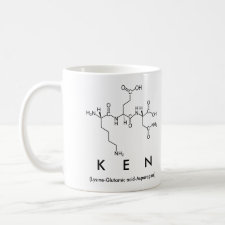
Authors: Rushton GT, Furmanski B, Shimizu KD
Article Title: Plastic antibodies: Molecular recognition with imprinted polymers - An introductory polymer chemistry laboratory investigation.
Publication date: 2005
Journal: Journal of Chemical Education
Volume: 82
Issue: (9)
Page numbers: 1374-1377.
DOI: 10.1021/ed082p1374
Abstract: Molecularly-imprinted polymers have recently attracted considerable attention as alternatives to conventional biological and synthetic molecular receptors owing to their facile preparation, versatility, and stability. Presented is an investigation of the binding properties of an ethyl adenine-9-acetate imprinted polymer prepared via free-radical initiation. Binding isotherms of polymers prepared in the presence and absence of a template molecule are compared and shown to differ in their affinity for the template. The preparation, processing, and analysis of the polymers can be completed within two three-hour laboratory periods with equipment common to typical organic chemistry departments. This investigation is well suited for an introductory polymer chemistry course at the upper-level undergraduate or graduate levels. The laboratory covers fundamental concepts such as separation science, sensing, and catalysis.
Template and target information: ethyl adenine-9-acetate



Join the Society for Molecular Imprinting

New items RSS feed
Sign-up for e-mail updates:
Choose between receiving an occasional newsletter or more frequent e-mail alerts.
Click here to go to the sign-up page.
Is your name elemental or peptidic? Enter your name and find out by clicking either of the buttons below!
Other products you may like:
 MIPdatabase
MIPdatabase









